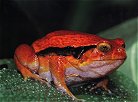


COSC 6368 --- Artificial Intelligence Spring 2006
( Dr. Eick )



Purpose of this Website
This website intends to satisfy the information requirements of
two independent groups:
- Students that take the graduate AI class
- People that want to find out what AI is,
what is subfields are,
and how its technologies, techniques, and
methodlogies can be used in industrial, government, and
research-oriented environments.
If you have any comments
concerning this website, send e-mail
to: ceick@aol.com
Basic Course Information
class meets: TU/TH 10-11:30a in 200 PGH
Instructor: Dr.
Christoph F. Eick
office hours (589 PGH): TU noon-1p TH 4-5p
TA: Udit Paditar
office: 536 PGH
e-mail: udit@cs.uh.edu
officehours: TU 4-4:45p TH 1:45-2:30p
cancelled classes:
makeup classes:
class room: 200 PGH
Course Materials
Required Text:
- S. Russell and P. Norvig, Artificial Intelligence, A
Modern Approach, Second Edition,
- Prentice Hall/Allyn&Bacon, 2003,
-
Link to Textbook Homepage.
Optional books with relevant material:
- N. Nilsson, Artificial Intelligence: A New Synthesis
- Morgan Kaufmann, 1998, ISBN: 1-55860-467-7, $59.95
- Call number: Q335.N495 1998
- E. Rich and K. Knight, Artificial Intelligence, 2nd ed.
- McGraw Hill Book Company, 1991, ISBN: 0-07-052263-4, $71.50
- Call number: Q335.R53 1991
- M.R. Genesereth and N. Nilsson, Logical Foundations of Artificial Intelligence
- Morgan Kaufmann, 1987, ISBN: 0-934613-31-1, $61.95
- Call number: Q335.G37 1988 and Q335.G37 1987
 News COSC 6368 Spring 2006
News COSC 6368 Spring 2006

- Grades for COSC 6368 will be available Monday evening!!
- Mark converted all ps-files into pdf-files that can be found at: http://www.cs.uh.edu/~paterson/ai
- Files of the
May 4, 2006 Final Exam Preparation Class (will be available no later
than May 6, 2006).
- The final exam is scheduled
for Th., May 11, 2p ---
note that the final exam starts at 2p (and not 2:30p --- Review List for 2006 Final Exam).
The final exam will not be returned to students: However, you can see your final exam at the following dates: Tuesday, May 23, 10:30a-11:30a, Thursday, August 24, 10-11a, and Monday, August 28, 4-5p.
- These are the 2006 weights for the different parts of the course:
Exam1:18%, Exam2:18%, Final:31%, Assignments:33%.
- This webpage is an evolving document. Some information still refers to the Fall 2004 teaching
of the course and will be updated during the course of the semester.
- The teaching of the course will be somewhat similar to the version
of the course that was offered in
Fall 2004. However, there will be more coverage in 2006 of evolutionary
computing, reinforcement learning, and there will be
less coverage of PROLOG,
knowledge-based systems, and belief networks. Moreover, the teaching of the course
will be more project-oriented: solutions of assignments and homeworks will be discussed in
more detail in the lecture.
Material Covered in COSC 6368
Artificial Intelligence(AI) resarch centers on the simulation of
intelligence in computers.
The class gives an introduction to Artificial Intelligence(AI), and
surveys AI technologies, techniques, methodologies, and algorithms.
In
particular, the subfields of AI problem solving and heuristic
search, logical reasoning, reasoning with uncertain knowledge, and machine learning/data mining will
be covered in more depth by COSC 6368 (see
Organization of our textbook for more details).
Course Organization
- I Introduction AI and Course Information (1 class)
- II Heuristic Search (4.5 classes)
- III Evolutionary Computing (1.5 classes)
- IV Machine Learning --- Inductive Learning and Reinforcement Learning (5.5 classes)
- V FOPL, Logical Reasoning, and Resolution (3 classes)
- VI Reasoning in Uncertain Environments --- Naive
Bayesian Systems and Belief Networks (3 classes)
- VII Agent-based Systems, Ontologies and Distributed AI (1 class)
- VIII Soft Computing (0.7 classes)
- IX Quick Survey on Planning (0.3 classes)
- X Philosophical Foundations of AI (0.5 classes)
- Discussion of Course Projects and Homeworks (2 classes)
- Other Activities: two exams (2 classes), review (1 class).
Prerequisites
Students are expected to have the following background:
- Knowledge
of basic computer science principles and basic programming skills. Ability to understand and analyze fairly
complicated algorithms and data structures. The course will assume familiarity with such concepts as:
big-O notation, queues and stacks, trees, graphs, etc.
- Familiarity
with the basic concepts of discrete probability theory. However, it suffices to read and understand
Chapter 13 of Russell and Norvig.
- Familiarity
with the basic search techniques, e.g. breadth-first search that are usually covered in a data structure course.
However, it more than enough to read and understand
Chapter 3 of Russell and Norvig.
- It is assumed that you have some basis
knowledge of propositional and predicate logic. It suffices to read and understand Chapters 7.3-7.5
and 8.1,8.2 of Russell and Norvig. Moreover, one course lecture will review the basic concept
of predicate logic.
- Students should have basic
programmig skills. Some assignments
require programming; however, students can choose the programming language they like the most. It is not
necessary to take COSC 4350 prior to taking COSC 6368.
The prerequisites for the class
are important, but only up to a point. The real prerequisite for this course is
the ability to solve abstract problems, to understand nontrivial algorithms,
and to have basic programming and system development skills. To some people these skills come by
more easily, whereas others get them by taking the corresponding classes. If
you feel that you have these skills, you can easily make up for the
prerequisites on your own.
2006 Assignments
Assignment1: Heuristic Search and Evolutionary Computing
Assignment2: Learning from Examples
Assignment3: Reinforcement Learning and Logical Reasoning
Assignment4: Probabilisic Reasoning, Belief
Networks, and Foundations of AI
2004 Assignments
2004 Assignment1
Solution Problems 2-4,
Benchmark TSP Problem and Discussion of
Cost Functions c1 and c3,
Discussion of Different Approaches TSP-Problem,
Results of Running Student Programs
for the TSP Benchmark)
2004 Assignment2 (
Solution Sketch Problem 7, Solution Sketch
Problem 11)
2004 Assignment3
Due Dates and Exam Dates 2006
| Activity | Due Date | Weight
|
|---|
| Assignment1 | Th., Feb. 23, 06 in class and Tu. March 7 in class | 32 *'s
|
|---|
| Assignment2 | Th., March 23, 06 in class | 16 *'s
|
|---|
| Assignment3 | Tu. April 11, 06 in class | 25 *'s
|
|---|
| Assignment4 | Th. April 27, 06 in class | 17 *'s
|
|---|
| Exam1 | Th., March 2 | 18%
|
|---|
| Exam2 | Tu., April 4 | 18%
|
|---|
| Final Exam | May ??. 2006 2-5p | 30%
|
|---|
Remark: weights are somewhat random and subject to change!
Class Transparencies
Here is some information concerning transparencies to be used in the
lectures of COSC 6368 (the transparencies are listed approximately in the
order in which they will be covered):
The Russel transparencies can also be obtained by following the
instructor link from the textbook link, and then clicking the slide link.
Textbook Coverage
One goal of this class is to give you a very up-to-date introduction
to AI.
To my best knowledge chapters 1, 4, 6, 8, 9, 14, 18, 20,
and 27 of the Russel textbook will be covered indepth. Chapters
3, 10, and 26 will be partially covered by COSC 6368. If there is
enough time left at the end of the semester, chapters 5 and 11 will be
also
covered. Additionally, a few journal articles and transparencies of the
instructor will be used as teaching material, especially for the lectures
that cover evolutionary programming, ontologies, and data mining. Moreover,
frequently, examples will be discussed in the lectures that are not
contained in the listed teaching material.
Late Submission Policy Spring 2006
Assignments and homeworks are due at the time specified at this
webpage or in the assignment itself. No submissions will be accepted after the
due date. However, students are allowed to submit one sigle assignment 4 days
(96 hours) late.
Grading
The course will have a midterm exam (scheduled
for Tu., October ??) and a final
exam (scheduled for Tu., December 14, 2004), 4 assignments (that contain
paper&pencil-style questions, or require to
solve particular problems using AI-tools, or require programming), and
a paper walkthrough. Each student has to
have a weighted average of 74.0 or higher in the
exams of the course in order to receive a grade of "B-" or better
for the course.
Students will be responsible for material covered in the
lectures and assigned in the readings. All homeworks and
project reports are due at the date specified.
No late submissions
will be accepted after
the due date. This policy will be strictly enforced.
Course grades will be based on 37% final exam, 30% midterm
exam, 33% will be allocated for non-exam activities (3% for paper
walkthrough and 30% for the 4 assignments).
Translation number to letter grades:
A:100-90 A-:90-86 B+:86-82 B:82-77 B-:77-74 C+:74-70
C: 70-66 C-:66-62 D+:62-58 D:58-54 D-:54-50 F: 50-0
Only machine written solutions to homeworks and assignments
are accepted (the only exception to this point are figures and complex formulas) in the assignments.
Be aware of the fact that our
only source of information is what you have turned in. If we are not capable to understand your
solution, you will receive a low score.
Moreover, students should not throw away returned assignments or tests.
Students may discuss course material and homeworks, but must take special
care to discern the difference between collaborating in order to increase
understanding of course materials and collaborating on the homework /
course project
itself. We encourage students to help each other understand course
material to clarify the meaning of homework problems or to discuss
problem-solving strategies, but it is not permissible for one
student to help or be helped by another student in working through
homework problems and in the course project. If, in discussing course materials and problems,
students believe that their like-mindedness from such discussions could be
construed as collaboration on their assignments, students must cite each
other, briefly explaining the extent of their collaboration. Any
assistance that is not given proper citation may be considered a violation
of the Honor Code, and might result in obtaining a grade of F
in the course, and in further prosecution.
Course Exams
Midterm
The midterm will be given on
Tuesday, October 26, 2002 during
the regular class hours. Here is the
Review List for the 2001 Midterm Exam. The
exam will be "open textbooks".
Review Sheet for 2001 Midterm Exam
Grades for the 2002 midterm exam
2004 Midterm Exam with some Solutions
Final Exam
The final will be held Dec. 17, 2002 11a.
Review Sheet for 2002 Final Exam (Dec. 17, 2002)
COSC 6368 Final Exam Fall 1999 (in Word)
COSC 6368 Final Exam Fall 2001 (in Word)
Part 2 of Fall 1999 Qualifying Exam (in html)
2004 AI Qualifying Exam
The AI Qualifying Exam will consist of two parts:
part1 with be the final exam of COSC 6368. Part2 will
be an extra exam that will be given on Thurday, December 16, 2002, 10:30a
in room PGH 350
Part2 of the qualifying exam will cover the following areas:
- Heuristic Search (focusing on chapters 3-4 of the
textbook and on material covered in the lectures); however, games will
not be covered in Part2.
- Decision trees (see requirements 2004 midterm
exam)
- Logical Reasoning (see requirements midterm exam)
- There will be questions concerning
the contents of the following paper: Thomas G. Ditterich: "Machine Learning Research ---
4 Current Directions" (questions will not refer to material
covered in sections 5.3 and 5.4 of the paper). 40-50% of the
available points for Part2 of the QE will be allocated to this part.
Part2 will take approx. 80 minutes; Part1 of the qualifying exam has a
weight of approximately 60% and Part2 has a weight of 40%. Both exams
are open textbook and notes! The same paper was used in the
2002 AI QE. Obviously, the questions
in the 2004 QE will be different, but looking at the 2002 questions might
give you a feeling what to expect.
Communication with the teaching staff
We strongly encourage students to come to my office hours or
to talk to me directly after class.
If a homework clarification is posted after a student has completed an
assignment, the student should contact us as soon as possible to check if
the assumptions s/he made are going to be accepted.
Please do not e-mail us with grading questions. If you want
us/me to
explain why I took points off, you can talk to me/us
during office hours and directly after class.
Material COSC 6368 Fall 1999
Midterm Exam Fall 1999
Problems Homework3+4 (RETE Problem
corrected on Nov. 16, 9a, and problem 16 updated on Nov. 19)
C5.0 Tutorial
(C5.0 is a decision tree machine learning and knowledge discovery
tool --- probably, the most famuous one of the decision tree family)
Stanford
Page with Additional Course Material
Assignment Problems Fall 2002
Assignment1
(Benchmark Problem 5)
Assignment2 (
Scores for the NBA Data Analysis Problem (#7)))
Assignment3
(Solution for problem 12 and 13a)
Assignment4 (Solution
Problem 15b)
Assignment
Scores Fall 2002 (reported scores for problem 14 and 15 are still
subject to verification)
Other Links
Group
Silver's Decision Tree Homepage (contains
useful links and
information for Assignment2)
last updated: May 11, 2006, 2p

And finally: Frogland --- all about frogs












 News COSC 6368 Spring 2006
News COSC 6368 Spring 2006

